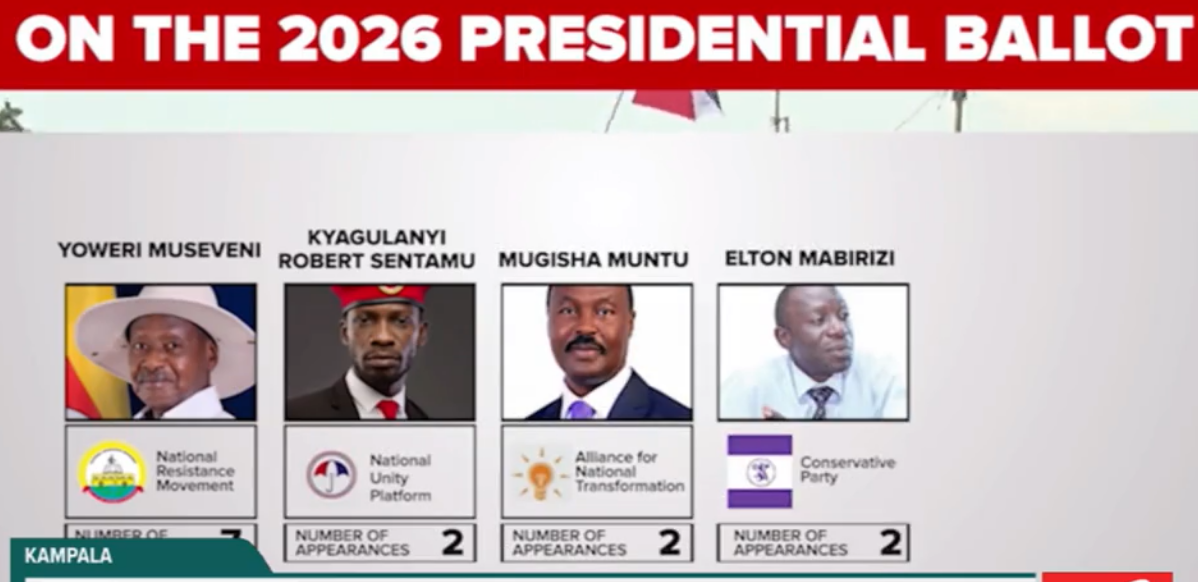Darren Walker
[Global Development: Commentary]
As I begin my third year at the Ford Foundation’s helm, I am reminded of how privileged I am—and we all are—to serve this institution.
For my colleagues and me, these past 15 months have entailed both deep introspection about this privilege and broad exploration of how we can harness and direct it to advance our mission. For us, what has unfolded is a process of discovery and renewal that has led us to reorganize our programming around the global crisis of inequality. We call this ongoing renewal FordForward.
Next month, I’ll be sharing more details about our thematic areas and the specific grantmaking lines of work through which we will carry out our programming. I look forward to beginning a new phase for the foundation that builds on Ford’s rich and varied history.
Since sharing the news of our focus on inequality, I’ve been encouraged—and, candidly, surprised—by the overwhelming response. As the chasm of inequality widens and deepens in communities around the world, we seem to have struck a nerve.
Yet while inequality certainly merits attention and effort, some have fairly pointed out a tension—if not a contradiction—between philanthropic efforts to address inequality and the structural economic realities that make it possible for foundations to exist at all.
The origins of modern philanthropy: This tension stretches back more than a century. In 1889, the American industrialist Andrew Carnegie composed his “Gospel of Wealth,” a short essay with far-reaching impact. It is, in many ways, the intellectual charter of modern philanthropy, and its basic precepts remain the underpinning of US giving and, in turn, have greatly influenced an era of burgeoning philanthropic enterprise around the world.
Carnegie articulated his philosophy at a time when inequality had reached unprecedented levels in the United States. In an age of excess, titans of industry enjoyed lives of startling opulence; ordinary people endured low wages, dangerous working conditions, and overcrowded, unhealthy living quarters. He argued—as some still do—that inequality on this scale is an unavoidable condition of the free market system and that philanthropy is one effective means of ameliorating the conditions the market produces.
Today, in this new period of rising inequality, it is timely that we reflect on the principles of philanthropy as originally set forth in Carnegie’s influential “Gospel of Wealth”—to consider to what degree they point to the realities and responsibilities of philanthropy in our time, and to openly acknowledge and confront the tension inherent in a system that perpetuates vast differences in privilege and then tasks the privileged with improving the system.
To be sure, philanthropy today is broader and more diverse than ever before. Its tens of thousands of individual practitioners around the world follow a variety of approaches, as intentional and unique as they are. As ever, there is no one-size-fits-all solution.
Moreover, philanthropy continues to advance through bold experiments with new models. From the global Giving Pledge initiated by Bill Gates and Warren Buffett, to the Robin Hood Foundation in New York City, to major philanthropic communities emerging in China, India, Latin America, Africa, the Gulf States, and elsewhere, a 21st-century style of “giving back” is lifting the lives and lots of millions of people around the world.
It is building schools, preserving cultural and natural diversity, and generating new vaccines, agricultural innovation, and the social entrepreneurship of a millennial generation of change agents. In the sheer persistence and proliferation of the philanthropic idea, Carnegie’s “Gospel” reverberates loud and clear—and I deeply admire the leadership and example of philanthropists and foundations around the world that we are honored to work with and learn from.
And yet, despite this vast ledger of undeniable public good, the tension persists. Why, in too many parts of the world have we failed to provide employment, education and health care, decent nutrition and sanitation? What underlying forces drive the very inequality whose manifestations we seek to ameliorate?
Rethinking the gospel of giving: My thinking on this issue has been shaped by the words of Dr. Martin Luther King Jr., who made a profound statement not long before his death: “Philanthropy is commendable,” he wrote, “but it must not cause the philanthropist to overlook the circumstances of economic injustice which make philanthropy necessary.”
I hasten to add that it is not solely economic injustice that philanthropy exists to address, and I believe Dr. King had a broader idea at heart: He challenges us still to look at underlying structures and systems, the roots of injustice, the causes of human suffering, and the sources of our own privilege.
In other words, perhaps the time has come to take the radicalism of Carnegie’s 19th-century revolution, mesh it with the courage of Dr. King’s, and make it our own. Perhaps it is time for a reimagined gospel of giving.
To borrow a phrase from Carnegie’s “Gospel” itself, we might recognize “the changed conditions of this age,” and adopt “modes of expressing this spirit suitable to the changed conditions under which we live.” We might disentangle the web of conditions that make philanthropy both possible and necessary.
If we’re being honest, we might acknowledge that we are crashing into the limits of what we can do with a 19th-century interpretation of philanthropy’s founding doctrine.
A 21st-century view of inequality: First of all, no one in philanthropy has the independent resources to solve our collective problems. In his lifetime, Andrew Carnegie gave away some $350 million. Even in today’s currency, this is a pittance in comparison with the world’s trillions of dollars of needs for food and housing, education, infrastructure, and health care.
What’s more, even though Carnegie understood and set out to address the notion of inequality –though he understood the problem more narrowly as “poverty”– he did so with a very different set of insights and a very different set of conditions within which to work. Compared with 125 years ago, we live in more enlightened, egalitarian, and participatory societies. In part because of what modern philanthropy helped set in motion, our polities have expanded in significant ways, making room to hear and heed more diverse voices and perspectives.
We also have technology, data, and a century of randomized controlled trials, which, together, enable us to broaden our scope and understand increasingly intricate patterns of injustice and how they persist and reproduce over time. In doing so, we are able to cast light on deep-seated, systemic problems—problems that in the absence of these insights would be attributed solely to individual failures or subject to misleading generalization.
Where Carnegie might have identified illiteracy as a source of inequality, for example, we now understand that the reverse is true—or, at the very least, that a complex symbiosis is at work. We understand, in a way he did not, that social, cultural, political, and economic inequalities set in place reinforcing conditions from the very start of life—in homes, in neighborhoods, and in schools—that create cycles of poverty, illiteracy, and lack of opportunity.
We also know that inequality is built on antecedents—preexisting conditions ranging from ingrained prejudice and historical racial, gender, and ethnic biases to regressive tax policies that cumulatively define the systems and structures that enable inequality to fester.
Because today we know more and are exposed to a diversity of views and insights, we can engage in a more thorough examination of the underlying barriers that prevent people from advancing in society. We can grapple not just with what is happening but also with how and why. And I believe that change must come in three basic forms.
Three steps toward reducing inequality
First, we need to open ourselves up to more critical, honest discussions about deeply rooted cultural norms and structures, including racial, gender, ethnic, and class biases.
We have made impressive progress on these issues, but some social and economic progress cannot blind us to the reality that far too many are left behind because of inequality’s asphyxiating grip on the aspirations of people in every corner of every country.
Second, we foundations need to reject inherited, assumed, paternalist instincts—an impulse to put grantmaking rather than change making at the center of our worldview.
For philanthropists working globally, our efforts shouldn’t be a matter of Western institutions directing NGOs in the Global South, or treating our grantees as contract project managers rather than as valued partners. Instead, we should be strands in the web—South to South, South to North—making connections and modeling the kind of equality we hope to achieve by listening, and learning, and lifting others up.
Furthermore, we’d be well served to recognize that the more excluded people are, the harder it is truly to hear them. We all believe that those most affected by policy ought to have a voice in creating it. So our work should lend agency—and legitimacy—to slum dwellers and rural farmers, incarcerated people and refugees, migrants pursuing a better life and families on public assistance.
Third, we need to interrogate the fundamental root causes of inequality, even, and especially, when it means that we ourselves will be implicated.
It is incumbent upon each of us to dig deeper and relish the dirt beneath our fingernails; what for Carnegie was bedrock, to us has become topsoil. There are obscured root causes buried deep in our history, our institutions, and our cultural practices—causes we have to unearth and evaluate in the harsh light of day.
For one example, when we talk about economic inequality, we might acknowledge an underlying, unspoken hierarchy, in which we relate everything back to capital. In most areas of life, we have raised market-based, monetized thinking over all other disciplines and conceptions of value.
We might ask related questions, too.
Within legacy institutions like ours, we should ask, How does our privilege insulate us from engaging with the most difficult root causes of inequality and the poverty in which it ensnares people?
How does our work—our approach to awarding grants, our hiring and contracting policies, even our behavior toward our partners and grantees—reinforce structural inequality in our society?
Why are we still necessary, and what can we do to build a world where we no longer are as necessary?
For individual philanthropists, it may well be appropriate to ask a similar set of questions: Is the playing field on which I accumulated my wealth level and fair? Does the system privilege people like me in ways that compound my advantages?
Our obligation to capitalism
These questions are at the heart of our collective work, but also at the core of our aspiration for an economic system that works for more people.
As Henry Ford II, framer of the modern Ford Foundation, wrote in a 1976 letter to his fellow trustees, the foundation is “in essence, a creature of capitalism.” Therefore, he suggested, we ought to “examine the question of our obligations to our economic systems and to consider how the foundation, as one of the system’s most prominent offspring, might act most wisely to strengthen and improve its progenitor.”
To put it more bluntly, we were established by a market system and endowed by the money of the past century’s 1 percent. We are stewards of enormous resources—participants in and beneficiaries of a market system. As a result, our work is quite literally enabled by returns on capital. In turn, I believe we are obligated “to strengthen and improve” the system of which we are part. My conviction is no anathema to capitalism. Adam Smith himself argued that the “invisible hand” could not be blind to the condition of society, and that “no society can surely be flourishing and happy, of which the far greater part of the members are poor and miserable.” This from a visionary who was not only the forefather of American capitalism but also the author of Theory of Moral Sentiments, which he regarded as more important than his Wealth of Nations.
Philanthropy’s role is to contribute to the “flourishing” of the “far greater part”—to help foster a stronger safety net and a level playing field. With each generation, we should be guided by our legacy of support for social progress and human achievement in the spirit of the Green Revolution, advances in public health and human rights, social movement building, creative expression and cultural innovation, and so much more.
Ultimately, this reckoning with—this reimagining of—philanthropy’s first principles and its relationship to our market system will not be easy, but this moment requires that we not go easy on ourselves.
Some might see this as a problem or as pressure. To me, however, it is inseparable from our privilege—because with privilege comes responsibility.
In this spirit, let us commit ourselves to proffering, and preaching, and practicing a new gospel—a gospel commensurate with our time.
Let us bridge the philosophies of Smith, and Carnegie, and King, and break the scourge of inequality. For when we do, to paraphrase another of Dr. King’s most powerful insights, we at last will bend the demand curve toward justice.
I welcome your thoughts—so please share your ideas on social media.
Darren Walker, President
The Ford Foundation







